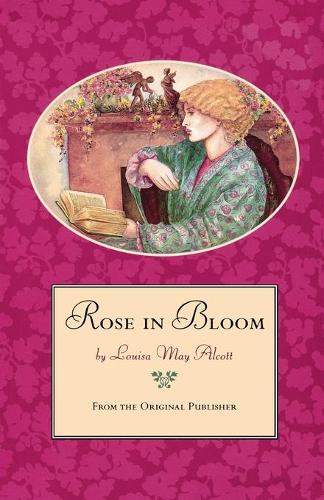
Rose in Bloom
(Paperback)
Available Formats
Paperback
Published: 1st September 1995
Paperback
Published: 18th October 2023
Hardback
Published: 16th August 2023
Hardback
Published: 24th May 2022
Publishing Details
Rose in Bloom
By (Author) Louisa May Alcott
Little, Brown & Company
Little, Brown & Company
1st September 1995
United States
Classifications
Children
Fiction
FIC
Physical Properties
Paperback
312
Width 140mm, Height 210mm
Description
In this sequel to Eight Cousins, Rose Campbell returns to the "Aunt Hill" after two years of traveling around the world. Suddenly, she is surrounded by male admirers, all expecting her to marry them. But before she marries anyone, Rose is determined to establish herself as an independent young woman. Besides, she suspects that some of her friends like her more for her money than for herself.
Author Bio
Louisa May Alcott was born in Pennsylvania in 1832. Like the character of Jo March in Little Women, young Louisa didn't conform to the restrictions placed on girls of the period: 'No boy could be my friend till I had beaten him in a race,' she claimed, 'and no girl if she refused to climb trees, leap fences.' And, also like Jo, she was highly imaginative and writing was an early passion. As her family was often in financial difficulty, Louisa worked from a young age to support her family, taking any position available: a governess, domestic servant, seamstress and teacher were among her jobs. She also wrote poetry and short stories for popular magazines, and melodramatic novels under a pseudonym. When the American Civil War began, Louisa, who fervently opposed slavery, lamented that women weren't able to fight, and volunteered as a nurse at the Union Hospital in Georgetown, Washington. Her nursing career was brief as she contracted typhoid, but she wrote Hospital Sketches, a truthful and poignant account based on letters she wrote home to her family in Concord, and it was published to great acclaim. In 1868 Louisa was asked by her publisher to write 'a girls' story'. This resulted in Little Women, which is largely based on the experiences of the author and her three sisters. It was a phenomenal success. In a time when children's books were morality tales featuring idealised, two-dimensional protagonists, Little Women was revolutionary, peopled as it was by relatable, flawed, fully realised characters. Its success guaranteed financial stability for Louisa, who continued the March family's story in Good Wives, Little Men and Jo's Boys. Louisa never married, concluding that 'liberty is a better husband than love.' She died in 1888 and is buried in Sleepy Hollow Cemetery in Concord.
